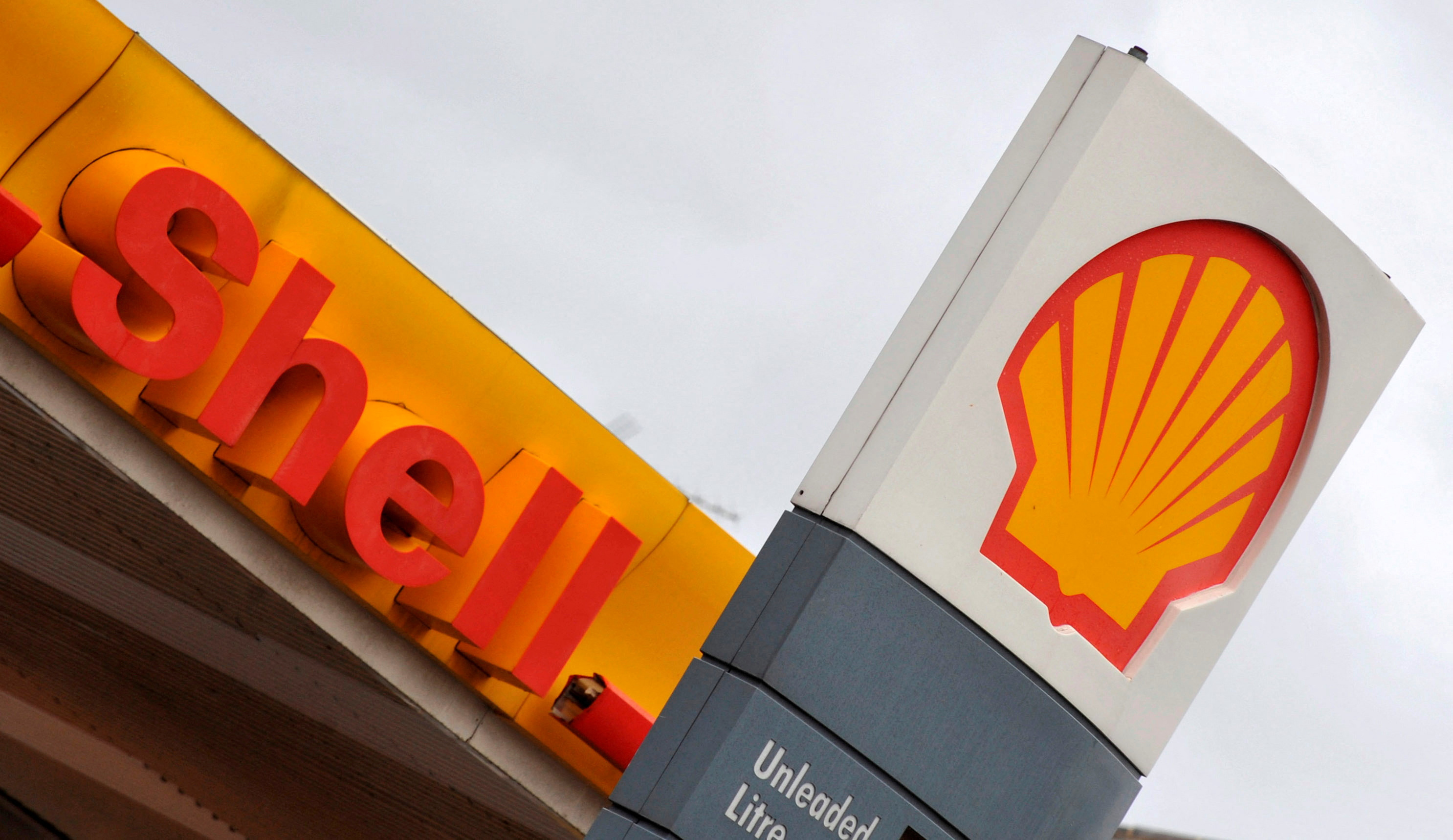Bussiness
Shell, Total continue buyback bonanza after record profits

Europe’s biggest oil companies Shell (SHEL.L) and TotalEnergies (TTEF.PA) extended share buybacks on Thursday after their second-quarter profits beat an already record-breaking previous quarter on the back of soaring crude, gas and oil product prices.
The two companies combined are buying back $8 billion in shares in the third quarter after recording their respective highest quarterly profits while keeping their dividends steady, which might disappoint some investors.
Benchmark Brent crude oil futures have risen more than 140% in the past twelve months, averaging around $114 a barrel in the quarter.
High crude prices normally weigh on refining margins, but tight refined fuel supply supported record profitability in the second quarter, with Shell’s refining margin virtually tripping to $28 a barrel.
Benchmark European natural gas prices and global liquefied natural gas prices were on average at all-time highs in the quarter.
Register now for FREE unlimited access to Reuters.com
Boosted by a record quarterly profit of $11.5 billion, Shell is buying back $6 billion of its own shares by late October, it said on Thursday, on the back of an $8.5 billion buyback scheme finished in the first half.vs

While this is in excess of the company’s guidance for shareholder returns of up to 30% of cash from operations, Shell did not raise its dividend from its current level of 25 cents a share, a 4% annual increase after a 60% cut during the pandemic.
TotalEnergies, with a 9% rise in quarterly profit to $9.8 billion, guided it would buy back $2 billion in the third quarter after purchasing $3 billion of its own shares in the first half of the year.
It had already announced a 5% yearly increase for its first quarterly dividend for this year to 0.69 euros per share, and said on Thursday it would keep that level for its second interim dividend of 2022.

“(TotalEnergies) has opted to maintain its buyback flat into (the third quarter), which may be disappointing to some investors given the current macro environment,” RBC analyst Biraj Borkhataria said.
TotalEnergies’ shares dipped 2.1% and Shell’s shares were up 1.6% after the results announcement, having risen about 35% and 49% respectively in the past twelve months.
This compares with an index of European oil and gas firms (.SXEP) gaining 1.6% in early trading.

The buybacks from Europe’s two biggest oil and gas groups by market capitalisation came in the same week that Norway’s Equinor (EQNR.OL) raised its dividend and share buyback guidance for 2022 by 30% to a total of around $13 billion.
Smaller rival Repsol (REP.MC) also announced a boosted share buyback programme on Thursday on the back of bumper profits, which doubled in the first half.
A rapid recovery in demand following the end of pandemic lockdowns and a surge in energy prices driven by Russia’s invasion of Ukraine have boosted profits for energy companies after a two-year slump. read more
The strong profit windfall has allowed companies to reduce debt piles that grew sharply during the pandemic as well as boost returns to shareholders.
Total Energies’ debt-to-capital ratio, or gearing, fell to below 10%, or half its level a year ago, from 12.5% in the first quarter, while Shell’s dipped to 19.3% from 21.3%.
Eni, Exxon and Chevron are due to announce results on July 29 and BP on Aug. 2.
Souce: www.reuters.com
Bussiness
Ghana’s GDP shows economy is fast recovering despite DDEP – Finance Ministry

Ghana’s Gross Domestic Product (GDP) indicates a rapid economic recovery despite global challenges and ongoing debt restructuring, according to the Ministry of Finance (MoF).
The Ministry in a statement today indicated that latest data from the Ghana Statistical Service (GSS), cumulative economic growth for the second quarter (Q2) of 2024 reached 6.9%, a notable increase from the 4.7% recorded in the first quarter of 2024.
The MoF statement further noted that, “The economy’s robust recovery is in response to the macroeconomic stability and growth interventions that government is pursuing under our IMF-supported Post Covid-19 Programme for Economic Growth (PC-PEG).”
According to them, the overall real GDP growth for the first half of 2024 rebounded strongly, with year-on-year GDP growth averaging 5.8% for the period, significantly higher than the 2.9% recorded in the same period in 2023.
By Edem Mensah-Tsotorme
Read full statement below


Bussiness
Facebook, Youtube, online trading companies must be taxed – Deputy Finance Minister

The Deputy Finance Minister Dr Alex Ampaabeng, has proposed that online trading companies should be taxed to bolster the economy.
He noted that these companies, both local and international, generate significant revenue from their Ghanaian clients, which underscores the necessity for taxation.
In an interview with Bernard Avle on Channel One TV’s The Point of View, Dr Ampaabeng pointed out various potential revenue sources for Ghana, including online businesses and content creation companies.
He questioned why other national companies operating in Ghana are taxed, but social media platforms like Youtube and Facebook, which run numerous advertisements, are not included in the Ghanaian tax system.
According to him, these social media companies earn profits from the advertisements they display, and online trading companies also generate income from the sale of their products and services.
He mentioned online trading companies such as Jiji, Jumia, and Tonaton, which he believes surpass all physical marketplaces in Ghana in size.
According to him, “I can’t think of a country which has not gotten a digital service tax system of some sort, so Ghana is long overdue. Just to make an example so that people will appreciate where I’m coming from. Go to Youtube and play a video, within one or two minutes, you are going to watch about two, or three adverts.”
“What it tells you is that Facebook or Youtube is making profits right here in Ghana. Go to your Facebook account, and you are going to see a number of adverts on your right, left. What it is telling you is that Facebook is making profits right here in Ghana and not being taxed. Meanwhile, there are companies operating in Ghana, for jurisdiction reasons, of course, that are being taxed,” he said.
The Deputy Minister added that “So then, it comes to the question of the application of our tax laws. Revenues generated in Ghana are subject to taxes. We have Facebook, TikTok and all those players, these are digital platform owners.”
He stressed, “Then we have the digital or market players, here we are talking about individuals who are using the digital platforms. We have Jiji, Jumia, Tonaton, these combined, are bigger than all physical marketplaces in Ghana. And it tells you the volume of transactions, that are going on there.”
He expressed his hope that individuals earning online profits from Ghanaian residents would be taxed.
“There are conversations ongoing, I wouldn’t want to pre-empt anything, maybe in the future, it might not be anytime soon, what I would like to see, is a Ghana where people who are earning all forms of profits in the country are subject to taxes. People who are trading online to Ghanaian residents, people who are generating revenue from Ghana are allowed to pay taxes,” he noted.
Additionally, he proposed a collaboration with the government to curb cybercrime by registering and verifying these online trading companies.
“We can have a system where the government engages these operators, so individuals will submit their Ghana Card and are registered and verified,”he concluded.
Source: Citinewsroom.com







